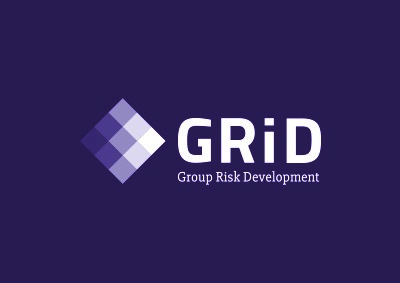Press release 16 May 2016
According to the World Health Organisation (WHO), one in four people will be affected by mental ill-health at some stage in their lives – as such, it is one of the most common reasons for workplace absence: both short-term as well as long-term.
Employers may feel ill-equipped to deal with this issue but, when it has the potential to affect so many, it’s important they have support in place.
Group Risk Development (GRiD) points out that help is available via Group Risk policies (employer-sponsored life assurance, income protection and critical illness), which have many added-value benefits to help with managing mental health – particularly Group Income Protection. These can include:
- Mental health first aid training for line managers
- Fast track access to talking therapies, including Cognitive Behavioural Therapy (CBT)
- Employee Assistance Programmes (EAPs)
- Bereavement counselling ß Absence and case-management and vocational rehabilitation.
Katharine Moxham, spokesperson for GRiD, said: “If employers don’t know where to start when it comes to managing mental health in the workplace then Group Risk policies are a great first port of call.”
GRiD emphasises that these services can be used daily, even if a claim is never made. Furthermore, added-value group risk services are often available to the entire workforce and not just the workforce members who are insured under the policy. Looking at the overall value of the package rather than just focussing on the premium is key to effective use of budget.
11.5 million people were covered by a Group Risk policy in the UK in 2015 against financial loss through illness, injury, death or disability – almost 310,000 more people than in 2014*. 2.1 million of those were covered by Group Income Protection* – and 50%** of employers utilise the added-value inherent benefits.
Katharine Moxham continues: “We are very pleased to see that employers are extending this protection to more people and that many are using the extra support but I think we can do better. The first step is for employers to look again at the policies they have. The chances are they could find there is something that they could make better use of, as a wealth of support is available at no extra cost that can offer great help across many areas and, specifically, in managing mental health.”
There is a strong business case for employers to do this. For instance, many employers may pay for an EAP when actually they may already have access to one via their Group Income Protection policy. So, looking at what is included in current policies could help employers save money. The savings can help offset the cost of premiums or be used elsewhere in the business. In addition, effective use can actually help reduce claims and thus premiums. 1,878 people were helped back to work supported by the insurer with early intervention during 2015 (before a claim was made)***, showing that the help is practical and tangible.
Katharine Moxham concludes: “When employers aren’t sure where to find help in managing mental health in the workplace, we would urge them to start with Group Risk. It has the potential to open up a whole world of support that they may not be using to their best advantage. Getting the most out of these services means using them as they are intended – every day – and, importantly, communicating them effectively to staff. This, in turn, can reinforce the position of a business as a caring organisation as well as giving vital support to people when they need it.”
– Ends –
* Swiss Re Group Watch 2016 report
** Group Risk Employer Research, conducted in September 2015 among 501 UK businesses with between 5 and 1,000 employees. Research was conducted by Lightspeed Research for Group Risk Development (GRiD).
*** GRiD Claims Survey 2016
For further information please contact:
Sharon Mason
SMUK Marketing and PR
smason@smuk.org.uk
Mob: 07747 611773
Land: 01252 843350
Katharine Moxham
Spokesperson for GRiD
Katharine.moxham@grouprisk.org.uk
Mob: 07887 512508
Notes for editors
About GRiD Claims Data
The GRiD claims data survey was undertaken among its provider members and the figures are an accurate representation of the current Group Risk market in its entirety. Respondents provided figures for Group Life, Group Income Protection and Group Critical Illness claims for 2015.
About GRiD
Founded in 1998, Group Risk Development (GRiD) encourages awareness and uptake of corporate group protection benefits – income protection, group life insurance and critical illness cover – on behalf of its members which include insurers, reinsurers and intermediary businesses. Under the chairmanship of Lee Lovett, Head of Business Development UK and Ireland Life, Munich Re, GRiD aims to enhance the industry’s profile among media and stakeholder groups. The Group provides a collective voice to Government and participates in industry wide initiatives such as the qualification in Group Risk launched jointly with the Chartered Insurance Institute. In May 2009, the Group appointed its first dedicated spokesperson, Katharine Moxham, to provide expert media comment on a full range of group risk issues.
www.grouprisk.org.uk
Follow Katharine Moxham on Twitter @KMoxham


